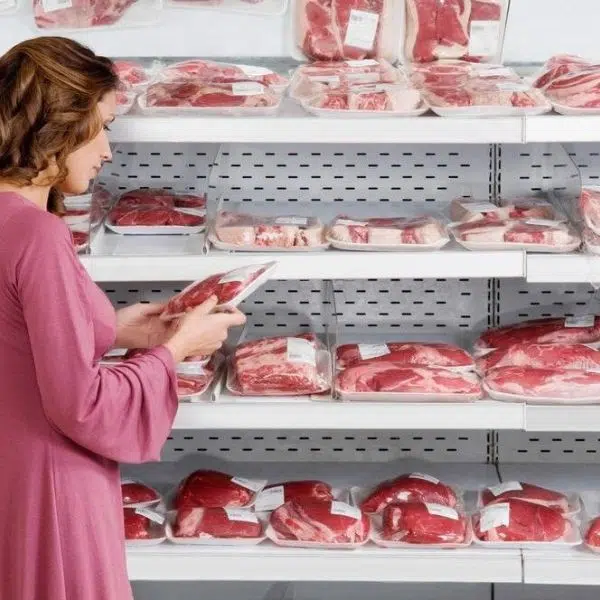Is Buying Meat Online Cheaper
When it comes to buying meat, many people are still uncertain whether it’s cheaper to buy it online or from a local grocery store or butcher. With the rise of online shopping, more and more consumers are considering ordering their meat online. But does buying meat online actually save you money? Let’s break it down and compare the pros and cons of both methods.
1. Price Comparison: Online vs. In-Store Meat
One of the first questions most people have is whether buying meat online is cheaper than in-store. The answer varies based on several factors, including the type of meat, the store or website, and where you live. Here’s a general breakdown:
- Online Meat Prices: Many online retailers offer competitive prices, and you may find special discounts or deals for bulk purchases. Additionally, some online meat stores cut out the middleman, which can lower prices. However, shipping fees can add extra costs, so it’s important to consider these when comparing online prices.
- In-Store Meat Prices: Local grocery stores and butcher shops may have higher in-store prices, especially if they sell specialty cuts or organic meat. But, since there are no shipping fees, buying in-store can sometimes be more cost-effective, especially for smaller quantities.
2. Hidden Costs of Buying Meat Online
While online meat stores can offer some attractive prices, there are additional costs to consider:
- Shipping and Handling: Many online meat stores charge a shipping fee, which can range from a few dollars to higher fees for expedited or international shipping. If you’re ordering a small amount of meat, the shipping fee can sometimes outweigh any savings on the price of the meat itself.
- Minimum Order Requirements: Some online retailers require a minimum order amount for free shipping. This could be a challenge for consumers who only need a small amount of meat, leading them to buy more than they need.
- Packaging and Preservation: Online retailers have to ensure that meat stays fresh during shipping, which means using special packaging and ice packs. These added measures may come at a cost, which could be factored into the final price.
3. Convenience Factor
While convenience doesn’t directly affect price, it is an important factor when considering the overall value of buying meat online versus in-store:
- Online: Ordering meat online is convenient and saves time. You can order from the comfort of your home, and many online stores offer quick delivery options. This convenience can be valuable, especially for those with busy schedules or limited access to local butchers.
- In-Store: Shopping in person allows you to physically inspect the meat and choose exactly what you want. There’s also no waiting for delivery. However, it can take more time to go to the store, find parking, and wait in line.
4. Quality and Selection of Meat
Another factor that may affect the cost comparison is the quality and selection of the meat available online versus in-store:
- Online Meat Stores: Many online meat suppliers offer premium quality options, including organic, grass-fed, or free-range meats, which may not be available in local stores. These premium selections might come at a higher price, but they offer variety and quality you might not get from your local store.
- In-Store Meat: Local butcher shops or grocery stores may offer meat from local farms or trusted suppliers, which is great for supporting local businesses. However, the variety of cuts and specialty meats may be more limited compared to online stores. If you’re looking for high-quality, niche options, online stores might offer a wider selection.
5. Deals and Promotions
Both online and in-store meat purchases offer opportunities for saving money:
- Online Discounts: Online retailers often run promotions or offer discount codes, which can make purchasing meat more affordable. Some sites also have subscription services, offering regular deliveries at a discount.
- In-Store Sales: In-store meat prices can be competitive, especially when stores run weekly promotions, discounts, or loyalty programs. Many stores also offer bulk-buying deals, where the price per pound drops if you buy in larger quantities.
6. Which Option Is Best for You?
Ultimately, whether buying meat online is cheaper than in-store depends on your personal needs and preferences. Here are some points to consider:
- If you’re looking for convenience: Buying meat online is likely more convenient, especially for large orders or if you have limited access to a local butcher.
- If you’re on a tight budget: In-store purchases may be cheaper, especially if you are able to take advantage of sales or buy in smaller quantities without shipping costs.
- If you want specialty or premium cuts: Online stores may offer better selection and quality, but at a higher price.
- If you don’t mind additional shipping costs: Buying meat online can be cost-effective if you’re able to make larger orders to offset the cost of shipping.
Conclusion
In summary, buying meat online can sometimes be cheaper, especially when you find discounts or bulk deals. However, you should always factor in shipping costs, packaging fees, and any minimum order requirements. In-store purchases can be more cost-effective for smaller quantities, but may not offer the same variety or convenience.
At the end of the day, the decision depends on your personal preferences, needs, and budget. Whether you choose to buy meat online or visit your local butcher, make sure you’re getting high-quality products at the best possible price.



